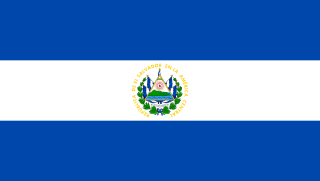
The shot put is a track and field event involving "putting" (throwing) a heavy spherical ball—the shot—as far as possible. For men, the sport has been a part of the modern Olympics since their revival (1896), and women's competition began in 1948.

The World Games are an international multi-sport event comprising sports and sporting disciplines that are not contested in the Olympic Games. They are usually held every four years, one year after a Summer Olympic Games, over the course of 11 days. The World Games are governed by the International World Games Association, under the patronage of the International Olympic Committee.

Athletics is a group of sporting events that involves competitive running, jumping, throwing, and walking. The most common types of athletics competitions are track and field, road running, cross-country running, and racewalking.

The decathlon is a combined event in athletics consisting of ten track and field events. The word "decathlon" was formed, in analogy to the word "pentathlon", from Greek δέκα and ἄθλος. Events are held over two consecutive days and the winners are determined by the combined performance in all. Performance is judged on a points system in each event, not by the position achieved. The decathlon is contested mainly by male athletes, while female athletes typically compete in the heptathlon.

The Paralympic Games or Paralympics, also known as the Games of the Paralympiad, is a periodic series of international multisport events involving athletes with a range of disabilities. There are Winter and Summer Paralympic Games, which since the 1988 Summer Olympics in Seoul, South Korea, are held almost immediately following the respective Olympic Games. All Paralympic Games are governed by the International Paralympic Committee (IPC).
World Athletics, formerly known as the International Amateur Athletic Federation and International Association of Athletics Federations, is the international governing body for the sport of athletics, covering track and field, cross country running, road running, race walking, mountain running, and ultra running. Included in its charge are the standardization of rules and regulations for the sports, certification of athletic facilities, recognition and management of world records, and the organisation and sanctioning of athletics competitions, including the World Athletics Championships. The organisation's president is Sebastian Coe of the United Kingdom, who was elected in 2015 and re-elected unopposed in 2019 for a further four years.
The World Athletics Championships are a biennial athletics competition organized by World Athletics. Alongside the Olympic Games, they represent the highest level championships of senior international outdoor athletics competition for track and field athletics globally, including marathon running and race walking. Separate World Championships are held by World Athletics for certain other outdoor events, including cross-country running and half-marathon, as well as indoor and age-group championships.

The 10th World Championships in Athletics, under the auspices of the International Association of Athletics Federations (IAAF), were held in the Olympic Stadium, Helsinki, Finland, the site of the first IAAF World Championships in 1983. One theme of the 2005 championships was paralympic events, some of which were included as exhibition events. Much of the event was played in extremely heavy rainfall.

Great Britain, represented by the British Olympic Association (BOA), competed at the 2000 Summer Olympics in Sydney, Australia. British athletes have competed in every Summer Olympic Games. 310 competitors, 181 men and 129 women, took part in 179 events in 23 sports. These were the first Summer Olympics in which the team of selected athletes was officially known as Team GB in a highly successful attempt to unify all the competing athletes across all the sports and events and boost team morale. Going into the games following their exceptionally poor performance in Atlanta widespread expectations of the team were low.

El Salvador competed at the 2000 Summer Olympics in Sydney, Australia, from 15 September to 1 October 2000. This was the nation's seventh appearance at the Olympics.

Indonesia competed at the 2000 Summer Olympics in Sydney, Australia.

The 2001 European Athletics Junior Championships was an athletics competition for athletes under-20 which was held at the Stadio Olimpico Carlo Zecchini in Grosseto, Italy from 19 – 22 July 2001. A total of 44 events were contested, 22 by male and 22 by female athletes. Two new events were introduced into the programme: the women's 2000 metres steeplechase and the women's 10,000 m track walk. Five new championships records were recorded over the four-day competition, in addition to the two marks set in the newly introduced events.
Angela Williams is an American athlete. Williams attended the University of Southern California, graduating in 2002. She won the Honda Sports Award as the nation's best female track and field competitor in 2002, which qualified her as a nominee for the Honda-Broderick Cup, awarded to the best overall female collegiate athlete in 12 sports. She was named the winner of that award also in 2002.
At the 2001 Summer Universiade, the athletics events were held in Beijing, People's Republic of China between 27 August and 1 September. A total of 45 events were contested, of which 23 by male and 22 by female athletes. The host country, China, took the most gold medals (9) and the most medals overall (16). The United States were a close second with a total of 8 golds. Five Universiade records were broken during the course of the athletics competition.
The Biathlon European Championships are the top-European competitions in biathlon. The first edition was held in 1994, with sprint, pursuit, individual and relay. The number of events has grown significantly over the years. Till 2015, the competitions included also junior events but since 2016 the Junior Championships are held separately.

Cuba competed at the 2011 Pan American Games in Guadalajara, Mexico from October 14 to 30, 2011. Jorge Marrero Gonzalez was the Chef de mission.

At the 2001 Jeux de la Francophonie, the athletics events were held at Terry Fox Stadium in Ottawa, Ontario, Canada between 19 and 23 July 2001. A total of 47 events were contested, of which 24 by male and 23 by female athletes. Included in this were two disability athletics events for wheelchair racers. A total of 23 Games records were broken or equalled in the competition.

The 2001 European Winter Throwing Challenge was held on 17 and 18 March at Stade Charles-Ehrmann in Nice, France. It was the first edition of the athletics competition for throwing events organised by the European Athletics Association. A total of 151 athletes from 22 countries entered the competition.
The 2001 South American Cross Country Championships took place on March 3–4, 2001. The races were held in Rio de Janeiro, Brazil.












